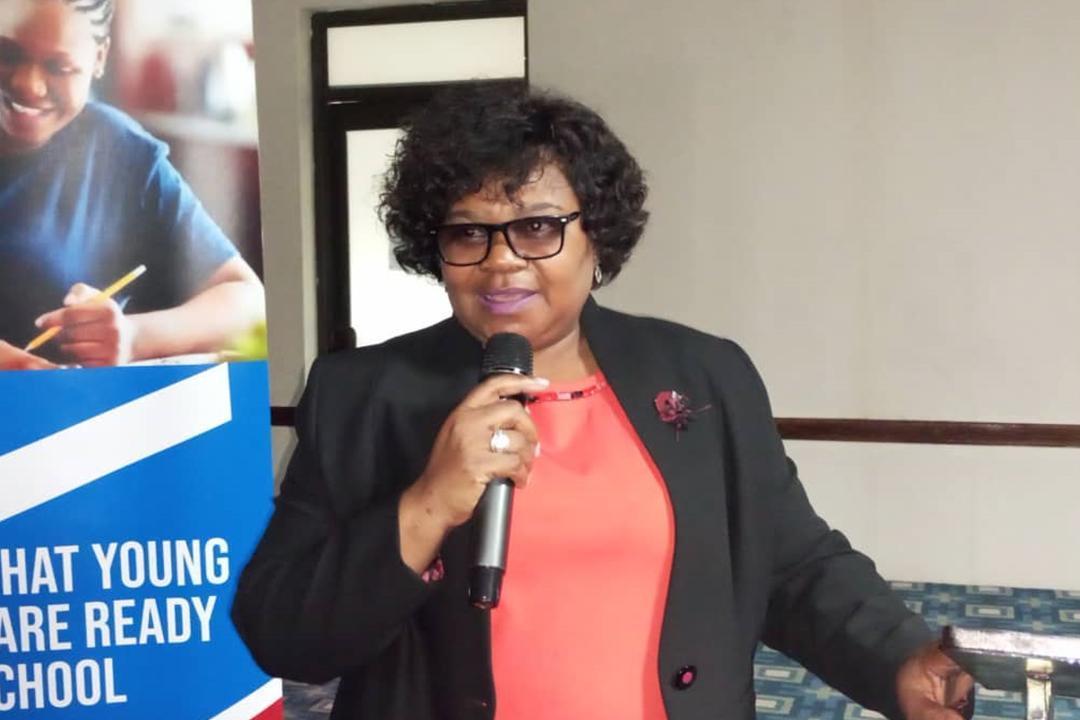Africa-Press – Eswatini. A fresh breeze of innovation is sweeping through Eswatini’s education corridors as the Ministry of Education and Training rolls out a bold new pilot programme for Grade 0 learners.
This week, 20 head teachers and educators gathered at The George Hotel in Manzini for a high-powered training workshop aimed at equipping them with the tools to deliver Eswatini’s newly designed Grade 0 Competency-Based Education (CBE) syllabus.
The pilot, backed by the World Bank and spearheaded by the Early Childhood Care and Development Education (ECCDE) unit in collaboration with the National Curriculum Centre (NCC), is being hailed as a game-changer for early childhood development.
Speaking during the workshop, Curriculum Designer Gcina Mabuza described the initiative as “a leap toward learner-centred, play-based education,” noting that the syllabus moves away from traditional rote learning to a more interactive, skill-based model. He explained that the sessions were intentionally hands-on to help teachers translate theory into practice.
“It was important to empower teachers to align classroom activities with the competencies and indicators outlined in the new syllabus,” Mabuza was quoted as saying.
He added that educators were also exposed to innovative teaching tools such as the new Teacher’s Guide, Learner Workbook, and storybooks developed specifically for Grade 0.
The training brought together voices from the Ministry, NCC, and seasoned facilitators, with curriculum experts leading sessions on lesson planning, classroom management, and child-centred learning.
Cynthia Zitha, one of the guest speakers, took teachers through the fine art of managing early-grade classrooms while fostering creativity and emotional development.
Ministry of Education and Training Chief Inspector and ECCDE leader Dr Dudu Hlophe stole the show with her passionate call for smaller class sizes and stronger learner engagement.
Speaking during her address, Dr Hlophe commended the educators for their commitment and urged them to embrace the spirit of guided play. She underscored the importance of maintaining classroom sizes of no more than 30 learners, saying this would allow teachers to give each child the attention they deserve.
Hlophe further inspired participants by sharing a touching video showing young children mastering life skills through guided play, a moment that reportedly left many in the room reflecting on the transformative power of early education.
Also weighing in was Curriculum Designer Sanelisiwe Nkonyane, who praised the joint efforts between ECCDE and NCC, made possible through support from the World Bank.
Nkonyane explained that the materials were carefully developed with the realities of the local classroom in mind.
“We wanted to ensure that teachers not only understand the content but feel confident in delivering it in ways that spark curiosity and joy in children,” she said.
The workshop, which targeted 20 government-hired Grade 0 teachers from selected pilot schools, included collaborative planning sessions where educators and head teachers exchanged strategies and pledged mutual support throughout the pilot phase.
As part of a larger initiative to strengthen early childhood and basic education in Eswatini, the pilot programme is aligned with the Ministry’s broader objectives of improving early grade literacy and numeracy, boosting learner retention, and enhancing the monitoring and evaluation of educational outcomes.
The training also addressed quality assurance mechanisms and introduced monitoring tools that will be used to track progress and impact throughout the pilot period. According to education officials, the pilot will serve as a litmus test before the national rollout of the new syllabus.
By the end of the workshop, a spirit of readiness and determination reportedly filled the room, with participants expressing confidence that they were well-prepared to usher in this new era of early learning.
“The future of education begins at the foundation,” said one head teacher during a feedback session. “And with these new tools and training, we’re ready to build it strong.”
The Grade 0 pilot is expected to kick off soon, with the Ministry expressing optimism that this forward-thinking approach will not only transform classrooms but also unlock the full potential of Eswatini’s youngest learners.
For More News And Analysis About Eswatini Follow Africa-Press







